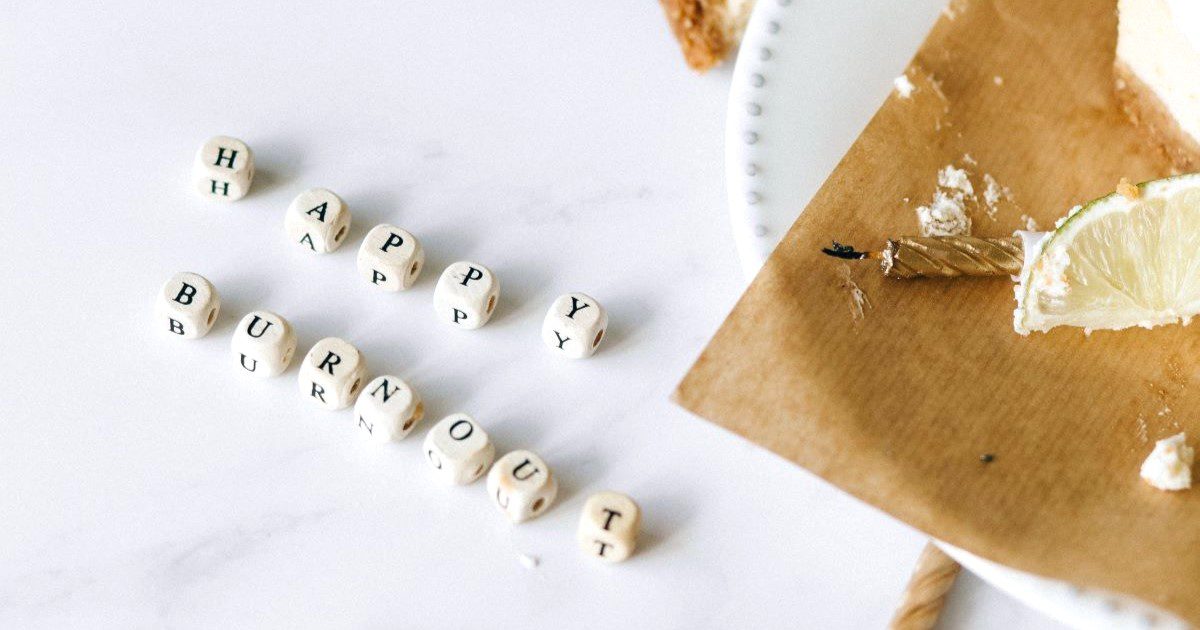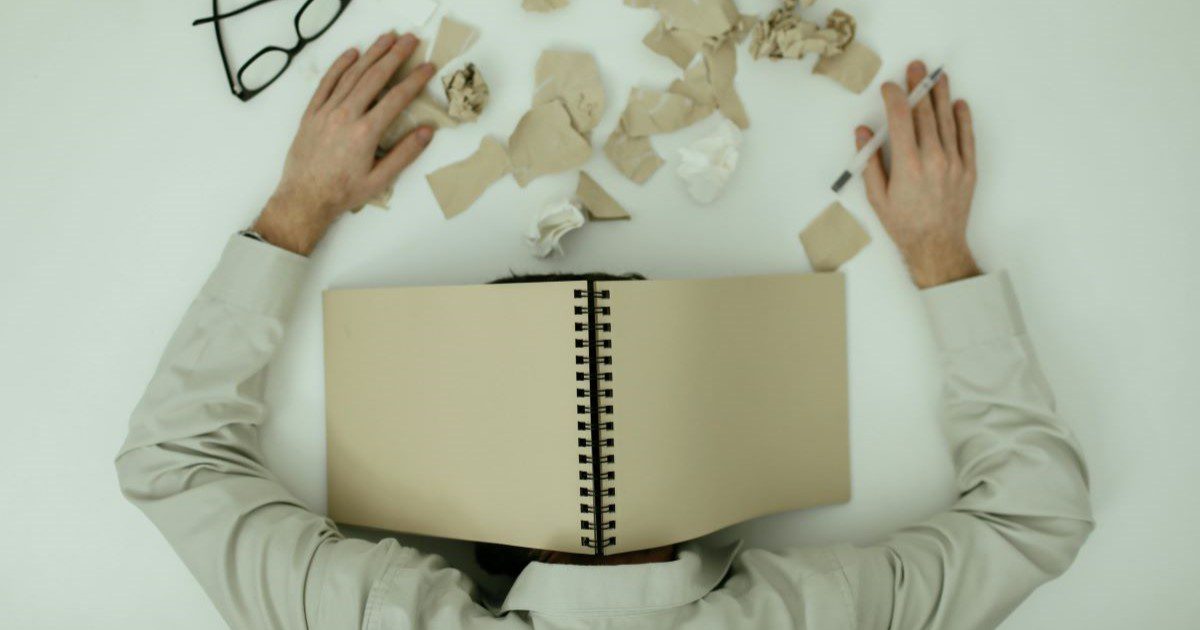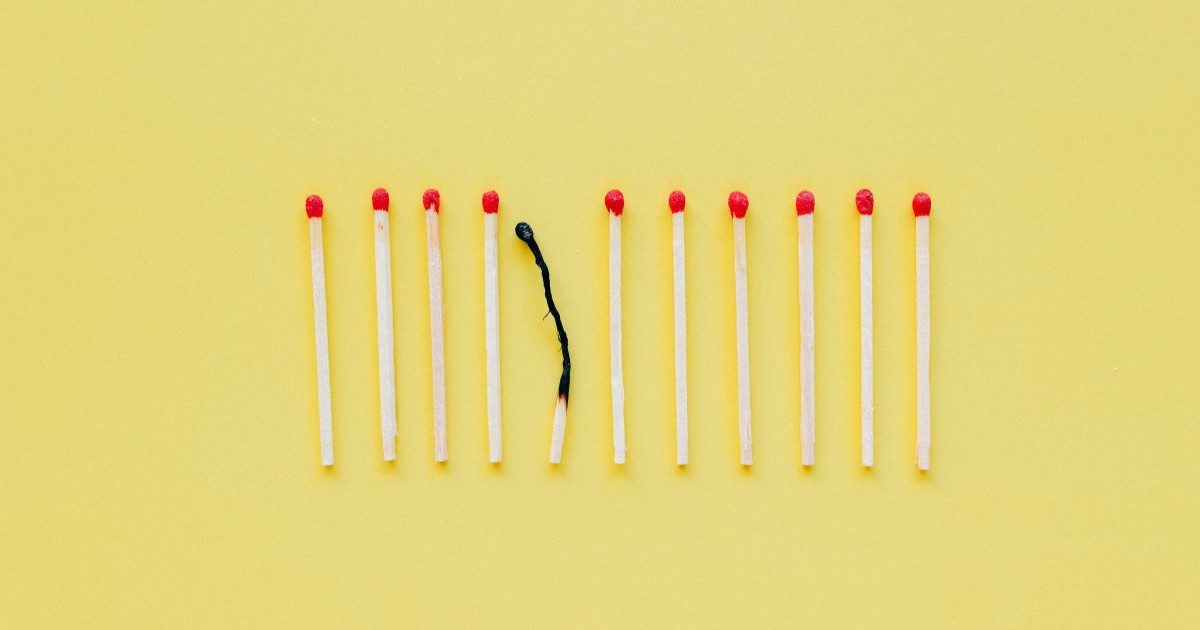January burnout – why Christmas didn’t fix it
Still feeling burnt out after the Christmas break? You’re not alone…
Many people view the Christmas holidays as a chance to relax after a stressful year. Once the nightmare of Christmas prep is over, all that’s left to do is rest and recuperate, so when the new year rolls around, you’re energised and ready to face it. But what happens when January arrives, and your burnout is as bad as it was before Christmas – or possibly worse?
If this new year has greeted you with stress and a side order of January burnout, rest assured you’re not alone.
Deidre’s story

Deirdre Olson
For writer and filmmaker Deidre Olson, Christmas is never a relaxing time of year. In years past, it was a time for huge family gatherings with all the classics – too much alcohol, consumerism, and mandatory festive cheer. Even now with much smaller events, Deidre finds herself exhausted from the stress.
“I always feel like I need another week to recover from everything,” she explains. “I don’t ever find Christmas relaxing. It is a lot of food, lazing around, and socialising, which is a huge departure from my routine. I always feel like I need another week to recover from everything. I always try to make it through the holidays with as little damage as possible, and I’m mostly on autopilot.”
Deirdre says that the recovery after Christmas takes a while, but she’s learned that she needs to really take care of herself.
“I need to sleep for an entire weekend post-holidays. The first week back at work is hazy and I have to adjust and get back in gear. I am making sure to sleep well, exercise, and cook healthy meals. I am not making any big plans because my social battery is maxed out for the foreseeable future.”
MC’s story
As a London-based freelancer in the fashion industry, MC is used to burnout. Freelance work can make it difficult to maintain a clear work life balance, and MC often finds herself slipping back into work autopilot despite burnout. And with holidays few and far between, Christmas came as a welcome respite from the constant grind of work.
“There’s a freelancer’s guilt that comes when I take breaks, and feel like I’m letting down a lot of people by implementing a holiday. So with Christmas I felt good about everything and was excited to finally decompress.”
I feel like an engine that just has no more power to push on
Burnout for MC might be regular, but it’s nonetheless still debilitating.
“I usually experience burnout via complete exhaustion and fatigue,” she explains. “I feel like an engine that just has no more power to push on, and typically feel it once I’m in the thick of the burnout. Sometimes my burnout occurs hand in hand with getting ill. At the start of January 2023 [after a big project] I got incredibly stressed, exhausted, and extremely ill.
“In May 2023, I was likewise just finishing a super stressful demanding project and afterwards caught the chickenpox for the first time. I think my immune system just responds to stress like this after experiencing immense adrenaline or stress.”
Christmas didn’t fix my burnout
While January did offer MC that much needed lull period, it didn’t come without its difficulties. The constant socialising left them drained and deflated by the new year, both mentally and physically. It was as if Christmas had opened the floodgates that the constant workload had held shut for so many months, leading to sickness and exhaustion.
After Christmas my body caught up with all the adrenaline rushes and social activities … I sat around January 2nd and felt completely deflated
“Unlike usual New Year ‘newness’ and ‘freshness’ I felt like an old rag that was just overused and had nothing left to give,” she explained. “After Christmas my body caught up with all the adrenaline rushes and social activities, and is coming down with it now. I sat around January 2nd in my living room and felt completely deflated.
“I had so many exciting achievements and beautiful experiences in 2023 and a part of me felt ashamed to even feel this at the start of a new year. It felt like there was a ceiling above my eyebrows that kept pushing my head down and cramping me in. I wasn’t ready to get back to work and felt like this whole cycle of work, vacation, work, vacation, work, vacation, is just unhealthy.”
With the burnout comes a whole lot more than just exhaustion. Dissatisfaction with your work, sadness, depression, frustration, and shame can all go hand in hand with burnout – and MC’s had to deal with the whole lot.
What causes burnout?
Psychology Today defines burnout as physical, emotional, and mental exhaustion brought on by prolonged or repeated stress. This stress can be from working long hours, or doing too many things at once. But burnout can just as easily be caused by a lack of support, recognition, or influence at work, or working towards a goal that doesn’t fulfil you.
Alongside exhaustion, workplace burnout can cause increased mental distance from your work, negative or cynical thinking and reduced productivity. All of these only make work more difficult, which can often make burnout even worse. So, for many of us, Christmas and other holidays come as a welcome break. They’re a chance to break the burnout cycle and get some relaxation in.
So if Christmas supposedly offers us a respite from our stresses, why do many of us then face January burnout?
Signs of burnout
Think you might be burnt out? Here are some ideas of what to look for.
One of the most common symptoms of burnout is exhaustion, whether it be physical, mental, emotional, or some mix of the three. Exhaustion can make it difficult to keep on top of your workload, causing further loss of motivation and stress. This stress can also make sleep difficult, leading to irritability, weakened immune system, and heightened emotional responses, such as crying. And even worse exhaustion.
As MC told us, burnout and depression can often go hand in hand, as well as feelings of shame, dissatisfaction and a lack of motivation.
“I feel the burnout usually accompanied by sadness or a depression and will sit with it for usually a week or two,” MC explained. “I’ll try to go to the gym, get my endorphins up in a spin class or treadmill walk, but often lose motivation quickly on keeping it consistent. I will daydream about going to a cafe and getting out but once it comes to doing it, I feel like it’s this massive daunting task and I’d rather stay in.”
Why Christmas doesn’t help
According to psychologist and relationship advisor Barbara Santini, Christmas often fails as a burnout remedy.
“Burnout, fundamentally, is the culmination of chronic workplace stress that has not been successfully managed,” she explained. “It’s characterized by three dimensions: feelings of energy depletion or exhaustion; increased mental distance from one’s job, or feelings of negativism or cynicism related to one’s job; and reduced professional efficacy.”
And Christmas, despite being hailed as a respite, does not properly address these aspects of burnout. Instead, the festive stress can make things even worse.
“The pressures of social gatherings, financial concerns, and the emotional labour involved in maintaining the facade of festive cheer can further deplete one’s already strained resources. This ‘holiday paradox’ – the clash between the idealized expectations of relaxation and the reality of holiday-related stress – can leave individuals more exhausted than they were before.”
“We adjust to a certain level of activity and stress,” Wanic explains. “Taking time off creates a new set point with lower stress and energy expenditure.”
And then, unlike December, there’s no holiday on the horizon. There’s no festivities, no merriment or excitement for the festive season. Where you may have been clinging to the approaching Christmas break, January offers no such promises. So, with no oasis in sight, the disconnect and exhaustion of burnout can be easily felt.
Plus, mindset psychologist Dr Rebekah Wanic tells us that taking a break resets your expectations of stress and activity. This means that the effort levels you could put in before the break no longer match with the levels you can put in when you get back. Your mind is prepared for much lower levels of activity and stress, which doesn’t line up with the amount of hard work you may be used to.
“We adjust to a certain level of activity and stress,” Wanic explains. “Taking time off creates a new set point with lower stress and energy expenditure. As a consequence, getting back into the grind can be extra challenging. (Think of it like the pain of going back to the gym after taking a few weeks off.)”
So we can often be left feeling dissatisfied and disappointed with our productivity levels after a break.
How to effectively tackle January burnout
Clearly, banking all our rest time on periods like Christmas doesn’t work. So how can we better protect ourselves and recover from January burnout?
…if we’re already burned out, how do we use breaks like Christmas as a helpful recovery period?
Santini offers us a few strategies, emphasising that proactive and consistent self-care is a vital part of burnout recovery. This applies to both the holiday period and working life. Burnout cannot be prevented by only resting and taking care of yourself during the holiday period. As much as many of us want to keep up productivity – whether it’s for ourselves or for others – the likelihood of burnout will only increase if we don’t allow ourselves to be unproductive once in a while. It seems like an obvious solution, but for a lot of us, hearing that we’re allowed to be unproductive can take a huge weight off. Taking time off is not only recommended but encouraged.
Christmas still remains the most consistently available holiday for most people. So, if we’re already burned out, how do we use breaks like Christmas as a helpful recovery period?
The big thing that prevents Christmas from being restful is the unrealistic expectation that the festivities will be some sort of panacea. The letdown of our ailments not being cured by some festive cheer only makes the January burnout worse. Instead of setting yourself up for New Year disappointment, engaging in genuinely restful activities with realistic expectations can allow this period to actually replenish you.
Next steps
Santini offers us a simple 6 step plan on how to recover from January burnout.
1. Conscious disconnection
Whether you’re still on holiday or back to work, conscious disconnection can help you keep burnout at bay. It’s about taking time to genuinely disconnect from work and work-related activities or thoughts. For example, not answering work calls or emails outside of work hours can help you maintain clear boundaries between work and rest. This helps your mind to take a real, beneficial break from stressors.
How to avoid burning out by saying no
2. Mindful relaxation
With the free time you have, it’s best to spend it wisely. And that means doing activities that bring you relaxation, enjoyment and fulfilment. This could be reading, going for walks, sports, or any other kind of hobby. If you constantly interrupt restful time by doing things you should be doing, it can be hard to feel truly rested.
3. Reflect and reassess
Take your downtime as time for introspection. What kind of stress have you been experiencing lately? What has been building up to make you so burned out? It could be your workload, a lack of support, insufficient rewards or any other factors. Figuring out what has led to your burnout can help you to effectively tackle it once you return to work.
4. Plan for change
Once you’ve narrowed down some of the root causes of your burnout, it’s time to address these issues. This may be through setting boundaries at work, changing your work habits, seeking support, or even planning for a career change. If you haven’t gone back to work just yet, then this may be the ideal time to begin the planning process.
5. Restorative practices
Recovery can’t all be about thinking and planning. Resting is just as important for tackling burnout, helping to reset your stress response and improve your ability to handle long term stress. Restorative practices can be any restful activity such as yoga, meditation or mindfulness.
6. Seek support
If the January burnout has truly overwhelmed you, consider seeking support from a mental health professional. Through this, you can gain numerous tools and strategies to better manage your work life balance, ease your stress and finally tackle burnout once and for all.
Take a look at some of Deidre’s award nominated work

Aiden is an editorial and production intern at Title Media whilst also studying for their English master’s degree. He’s constantly looking for opportunities to have fun and get creative, whether it be art, baking, storytelling… you name it!







Leave a comment